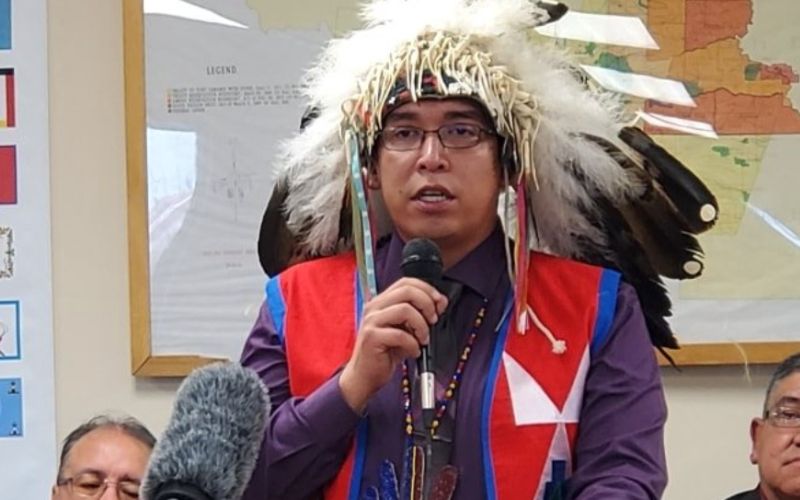
- Details
- By Native News Online Staff
Julian Bear Runner, 39, was sentenced last Thursday by a U.S. District Judge to 22 months in federal prison, followed by three years of supervised release and ordered to pay more than $80,000in restitution to the Oglala Sioux Tribe.
Bear Runner served as the tribe's president from 2018-2020. During his tenure, submitted fraudulent travel vouchers for official business travel for trips he never took. The fraudulent vouchers included travel authorizations to New Mexico, Montana, Ohio, North Carolina, New York, and Arizona. Bear Runner received more than $80,000 in advance travel payments. According to a statement from the Department of Justice, Bear Runner cashed the checks at a casino, gambled, and stayed in local hotels.
In April 2024, a jury convicted Bear Runner of six counts of Wire Fraud, one count of Larceny, and one count of Embezzlement and Theft from an Indian Tribal Organization.
With more than 46,000 members, the Oglala Sioux Tribe is the eighth-largest federally recognized tribe in the U.S. The tribe resides on the Pine Ridge reservation, which spans 11,000 square miles in South Dakota. Bear Runner was sworn into office on December 7, 2018, in Kyle, S.D. According to a post on the official Oglala Sioux Tribe Facebook page, he is one of the youngest elected presidents in the tribe's history.
Current Oglala Sioux Tribe President Frank Star Comes Out could not be reached for comment.
More Stories Like This
Native News Weekly (August 25, 2024): D.C. BriefsNavajo Nation Mourns the Passing of Former Vice President Rex Lee Jim
Deb Haaland Earns Endorsement From Communications Workers of America Local 7076
University Soccer Standout Leads by Example
Two Native Americans Named to Democratic Congressional Campaign Committee's“Red to Blue” Program
Help us defend tribal sovereignty.
At Native News Online, our mission is rooted in telling the stories that strengthen sovereignty and uplift Indigenous voices — not just at year’s end, but every single day.
Because of your generosity last year, we were able to keep our reporters on the ground in tribal communities, at national gatherings and in the halls of Congress — covering the issues that matter most to Indian Country: sovereignty, culture, education, health and economic opportunity.
That support sustained us through a tough year in 2025. Now, as we look to the year ahead, we need your help right now to ensure warrior journalism remains strong — reporting that defends tribal sovereignty, amplifies Native truth, and holds power accountable.
 The stakes couldn't be higher. Your support keeps Native voices heard, Native stories told and Native sovereignty defended.
The stakes couldn't be higher. Your support keeps Native voices heard, Native stories told and Native sovereignty defended.
Stand with Warrior Journalism today.
Levi Rickert (Potawatomi), Editor & Publisher


